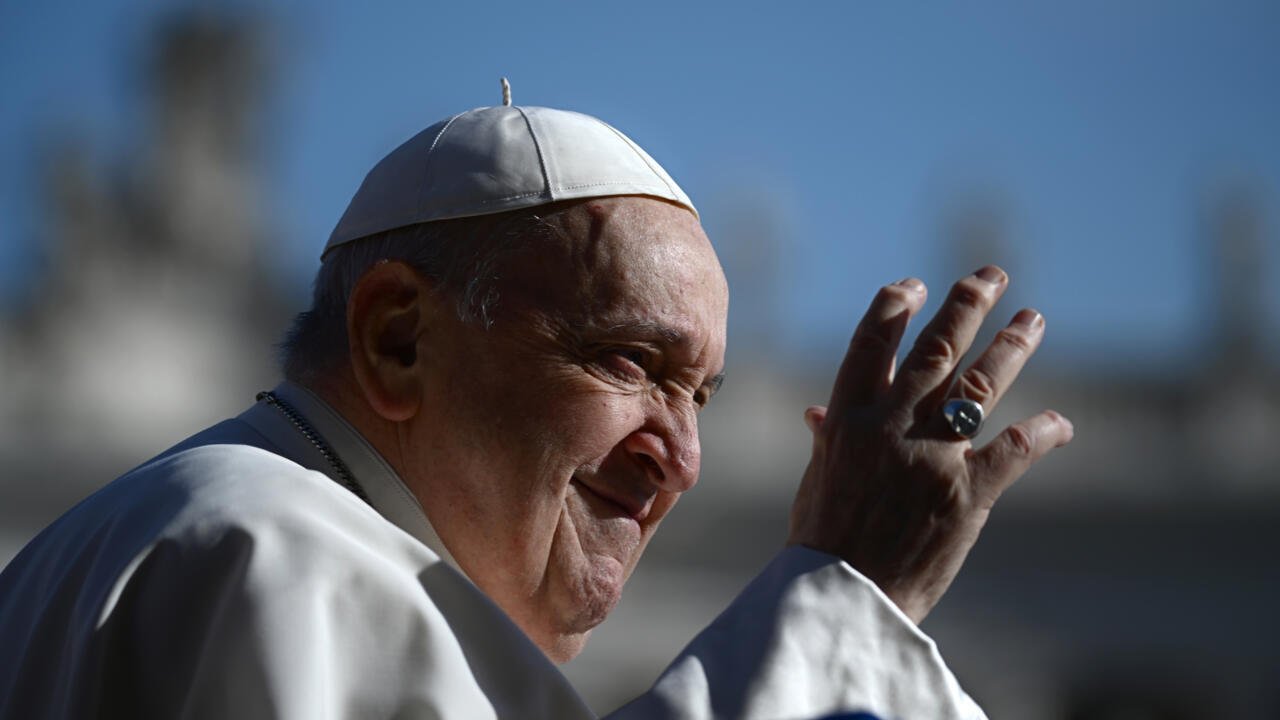Pope Francis, Spiritual Leader of the Catholic World, Passes Away at 88
The Vatican has confirmed the death of Pope Francis. According to a CBS News report, Pope Francis — known worldwide as a bold reformer of the Catholic Church and a "Pope of the people" — passed away this morning at 7:30 a.m. (local time) at the age of 88. His death occurred the day after Easter Sunday, a time full of symbolic meaning.
Pope Francis, Spiritual Leader of the Catholic World, Passes Away at 88
Pope Francis, Spiritual Leader of the Catholic World, Passes Away at 88
Rome, April 21, 2025
The Vatican has confirmed the death of Pope Francis. According to a CBS News report, Pope Francis — known worldwide as a bold reformer of the Catholic Church and a "Pope of the people" — passed away this morning at 7:30 a.m. (local time) at the age of 88. His death occurred the day after Easter Sunday, a time full of symbolic meaning.
Pope Francis had been suffering from serious health complications for several years. He underwent two abdominal surgeries and experienced multiple respiratory infections. In February and March of 2025, he was hospitalized for five weeks with pneumonia. He observed the 12th anniversary of his papacy from his hospital bed.
From the moment he was elected pope in 2013, he challenged the Vatican’s conservative traditions and sought to make the Church more humane and accessible to ordinary people. In his first address to the public as pope, he said:
"I want to ask you a favor. I ask that you pray for me, before I bless you."
That small request marked a historic shift — Pope Francis introduced himself as a “fellow pilgrim,” not a supreme ruler, but a priest standing beside the people.
Born in Argentina as Jorge Mario Bergoglio, Pope Francis chose his papal name after Saint Francis of Assisi, a symbol of simplicity and compassion.
He envisioned a “poor Church” that would “embrace the excluded.” Rejecting the opulent papal apartments, he chose to live in a modest guesthouse. He carried his own bag and even bought his own glasses from a local store.
“I cannot greet people from inside a sardine can,” he famously said, referring to the bulletproof popemobile — which he chose not to use.
He shared meals with the homeless, washed the feet of prisoners, and provided refuge in the Vatican for migrants and war refugees. He fiercely criticized consumerism, selfishness, and unjust economic structures.
He took a firm stand on climate change, issuing an encyclical — a formal papal letter — calling for urgent environmental action. It became one of the Church’s most significant contributions to environmental advocacy.
During the COVID-19 lockdowns, even as gatherings were banned, Pope Francis stood alone in St. Peter’s Square, offering prayers to the world. After being vaccinated, he became the first pope to visit Iraq, where he prayed in churches once ravaged by ISIS.
Over time, his health continued to decline. In 2021, he spent 10 days in a hospital recovering from colon surgery. In 2022, a torn knee ligament confined him to a wheelchair, forcing him to cancel several Vatican events and foreign trips.
One of the biggest challenges of his papacy was the global clergy sexual abuse scandal. Initially criticized for a slow response, he later took decisive action. In 2019, he convened senior Church leaders at the Vatican, introduced new laws, and lifted the "pontifical secret"— a policy that had long shielded the abuse crisis in secrecy.
He also played a key diplomatic role in restoring relations between the United States and Cuba, ending decades of hostility.
Pope Francis' simple lifestyle reflected his personal history. He was the son of an Italian immigrant railway worker and a homemaker. He lost part of a lung to infection as a child, worked various jobs, and studied chemistry. He was ordained a priest at the age of 32 and dedicated his ministry to serving the poor in the slums of Buenos Aires.
During a press conference, when asked about LGBTQ rights, he uttered a phrase that became iconic:
“Who am I to judge?”
This simple sentence became one of the most powerful messages in Church history.
However, he upheld traditional Church teachings on same-sex marriage, birth control, and the ordination of women, drawing criticism from some conservative Catholics. Yet Francis maintained that he was simply trying to stay true to the truth.
Before being elected pope in 2013, he once said he had brought only a small bag to the papal conclave because he “did not expect to be elected and thought he’d return to Argentina.”
But from that moment on, neither his life nor the Catholic Church was ever the same again.










